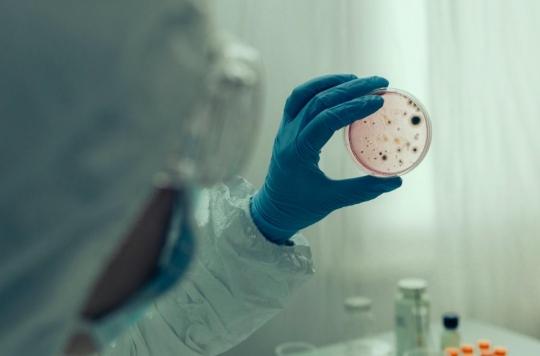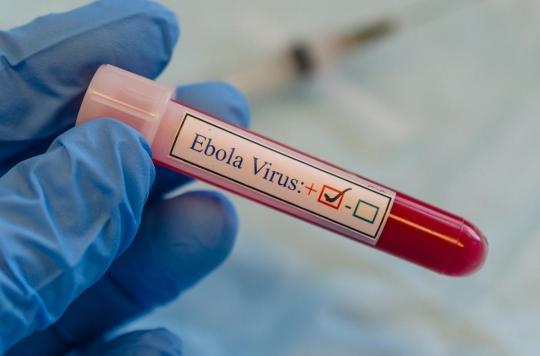
The facts about the candidate corona vaccines
Six in ten people want to get the corona vaccine once it’s there. The rest have doubts, according to a survey by Eenvandaag among 35,000 people. They fear rush work and vaccines that are too experimental. What are the facts?
Fact: Two candidate vaccines have come a long way
The WHO reports on July 6 that there are 21 vaccine candidates that are in the ‘clinical phase’. So these are already far. Clinical research has 3 phases until registration. After that, the drug can be registered and (if approved) come onto the market. Two candidate vaccines have now entered the final third phase. According to positive estimates, the first vaccine could hit the market within a year.
Fact: The first vaccine may come from China
There are many Chinese companies on the list of 21 candidate vaccines in the clinical phase, so a Chinese vaccine may well be the first to be registered. One of the two vaccines leading the race for first registration is Chinese-made. It is the vaccine CoronaVac from the company Sinovac. This is a vaccine with a ‘weakened coronavirus’, a known type of vaccine, which is being tested on almost 9,000 people. In the earlier phases, 90% of people appeared to have a to have a good immune response.
Fact: The government has bought the Oxford vaccine
The other frontrunner in the race for first registration is the Oxford vaccine. This is made in collaboration with the British-Swedish company AstraZeneca. The Oxford vaccine is a defused cold virus with the spines of the coronavirus on the outside. The hope is that the immune system will make antibodies against those spines. This is the vaccine that the Dutch government has purchased with three other countries. There was a lot of criticism, so the further purchase of vaccines has been shifted to Europe.
Fact: Some types of vaccines are new, but we are not guinea pigs
As for the guinea pigs – there are, but in the research phase. Once a vaccine has been registered, much is already known about its effectiveness and safety. Enough to give it to large groups of healthy people, according to the registration authority. We are therefore not real guinea pigs, even if it remains exciting with a new vaccine. The first period on the market is therefore also referred to as ‘phase 4’, which really shows how effective and safe the new vaccine is.
Several corona vaccines are likely to appear on the market in the coming years. There are new types in between, with which there is little or no experience. That’s exciting, because we don’t know everything about this yet, but at the same time it could lead to medical breakthroughs in the vaccine field. It also means that there is something to choose from. In addition to the new mechanisms, there are also more proven types of vaccines.
Fact: The flu shot and pneumococcal vaccine don’t work against the coronavirus
Just like with the coronavirus, you can also get a serious pneumonia with the flu or pneumococcal disease. These vaccines do not protect against covid, but they are certainly recommended if you are vulnerable to severe pneumonia, according to the WHO.
Fact: There are NO pieces of fetus in the vaccine
Facebook posts say there are human fetus pieces in the Oxford vaccine, reports Nu.nl. The news site has checked and it appears to be different. Laboratory cell lines are used for the vaccine. These are cells that were once grown from (yet) a human fetus, but that was almost fifty years ago. The cells have changed a lot in the decades since. They no longer resemble the cells of the fetus that the original cells once came from, the news site said.
Fact: It is indeed fast, but not rash
Another concern of the Eenvandaag panelists was whether the vaccine is not being made too quickly. Normally it takes years, and now we have a vaccine in a much shorter time. More haste less speed? A fair question. An important guarantee of the efficacy and safety of a new vaccine is the inspection by the EMA, the European medicines authority, before it is put on the market. There the chaff is separated from the wheat. There can always be something wrong with a vaccine or a medicine after registration. There are examples of medicines that have been taken off the market, but fortunately these are exceptions.
Normally an assessment takes a year and a half. Now that the world is so looking forward to a corona vaccine, the registration authority is going to accelerate this considerably to 2-3 months. So doubly rush when making and assessing. Is it still as thorough as we are used to? Ton de Boer, chairman of the Medicines Evaluation Board, answered in a broadcast of Nieuwsuur: ‘Companies will have to do everything they normally have to do. No essential steps can be skipped. If it’s given to millions of healthy people, you can’t take any chances. The EMA will work on these files with extra manpower. They assess to what extent the candidate vaccines can prevent corona infections and whether they make covid less serious.’
Fact: The Belgians seem more skeptical than the Dutch
The Belgian magazine Knack also has did a poll to the willingness to get a vaccine against the coronavirus. Nearly 100,000 people responded and only 29% would take the shot. That is therefore much lower than in the Netherlands, while the outbreak in Belgium has been more severe. How is that in the rest of Europe? A poll in a number of European countries showed that at least 60% of the respondents in the countries do want a vaccine against corona. In the Netherlands it was even 71-75%, so slightly higher than the percentage of 59% that Eenvandaag had measured.















